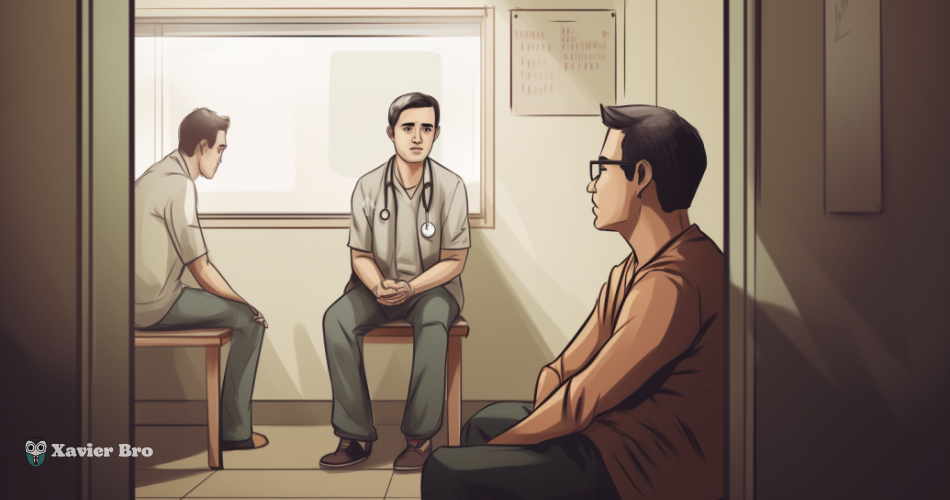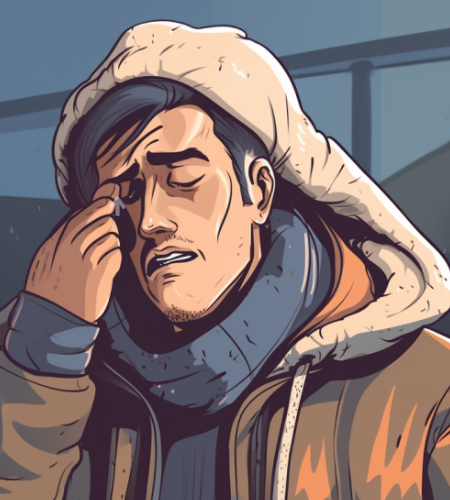If you feel that your body temperature is always cold, it means your body may lack any vitamins. It is a sign of a notable health condition. But one of the causes to feel cold is vitamin deficiency, as they are vital for the body. They help for proper body functioning, likewise controlling your body temperature. Among the numerous vital vitamins, the three vitamins regulate body temperature. It contains vitamin B12, vitamin C, and folate. You may experience coldness when you don’t get vitamins.
What Vitamin Deficiency Causes You to Feel Cold?
This article will discuss what vitamin deficiency causes you to feel cold.
Essential vitamins affecting body temperature
Vitamins are essential nutrients that allow your body to perform different functions. It includes controlling body temperature. Some vital vitamins for regulation are B12, folate, and C.
If there is a shortage of any of these vitamins, it may lead to severe health issues. Likewise, it affects your body’s capability to keep an average temperature. Hence, you should eat foods rich in these vitamins to treat vitamin deficiency. Take medicines as your doctor suggests.
Causes, Signs, and Diagnosis of Vitamin B12
Vitamin B12 produces red blood cells and DNA in all cells. If it is not treated, it can lead to bodily, neuro-muscular, and mental issues. It causes diseases like pernicious anemia, gastric issues, and intestinal problems. There are multiple signs of a lack of vitamin B12.
It includes fatigue, yellow skin, weight loss, and uneven heartbeat. It even possesses numbness of limbs, cramps, mood swings, and forgetfulness. Blood tests check red blood cells, vitamin B-12, and antibody levels.
Reasons, Signs, and Diagnosis of Vitamin C
Vitamin C lets the body make collagen and a robust immune system. Vitamin C deficiency can ensue in people who do not eat enough fruits and vegetables. Some of the reasons are smoking malabsorption and dialysis. There are multiple signs to identify its shortage.
Scurvy is the most severe form. It causes bones, teeth, and immunity disorders. Moreover, you may also suffer from anemia, infections, and even fatigue. The diagnosis relies on signs and blood tests, like its level in the plasma or white blood cells.
Causes, Signs, and Diagnosis of Folate
Folate is also a water-soluble vitamin, making DNA and red blood cells. A diet lacking fresh fruits, veggies, and cereals can cause it. It can lead to gastrointestinal tract diseases and genetic disorders.
Certain drugs and extreme alcohol can affect it. Some signs include weakness, neural tube flaws, cancers, heart diseases, and stress. Blood tests can count the folate level in the plasma or blood cells.
Cures for Vitamins Lacks
Vitamin B12 shortage is treated with injections or pills. The dosage and time count on whether it is linked to diet or aspects. People with less absorption require lifelong therapy. Vitamin C deficiency is treated with syrups or injections.
The dosage should be taken with meals. The lack of folate is treated with oral tablets of folic acid. The dosage relies on the severity of anemia or other infections. Pregnant women require higher quantities of folic acid.

Side effects of taking too much or too less vitamin
Excessive and shortage of vitamins can adversely affect the body. An extra dose of vitamin B12 can cause headaches, skin issues, body pain, and lumps. It might interact with drugs or grow the risk of cancers. Taking too little include fatigue, pale skin, numbness, muscle flaw, mood swings, and memory loss.
Taking too much vitamin C reduces the effect of the drugs. Its shortage includes loose teeth and poor healing. Too much folate increases cancers, sleep troubles, and seizures. Folate shortages include anemia, weakness, and mental issues.
Ways to prevent its shortage
Eating a balanced diet is the finest way to avert a shortage of vitamins. Consume food full of vitamins. Some people may require drugs to meet their daily needs for these vitamins. There are people with different medical needs that affect their absorption or metabolic system.
People who follow a vegan diet, pregnant women older than 50, and have a genetic variation require doses. Yet, it should be taken with the advice of a doctor to avoid side effects.
Foods rich in vitamins
Animal liver and kidneys are rich in vitamin B12. Clams are a lean protein source, and sardines are small fish rich in vitamin B12. Asparagus is rich in folate. It contains a fair amount of fiber for fitness. Leafy veggies include spinach, kale, and arugula.
They are low in calories but deep in folate and vitamin C. Eggs are a valuable basis of folate and protein that protect eyesight. Citrus fruits contain vitamin C. Fortified cereals are rich in vitamin B12 and folic acid.
Value of an optimal body temperature
The average span for body temperature is between 36.5°C to 37.5°C. Yet, this can vary leaning on age, training, day span, and environmental needs. Vitamin B12 is vital for energy and regulates the body’s response to temperature shifts. Vitamin C is a factor for many metabolic energy and immunity.
Folate regulates the face of genes involved in thermogenesis. Vitamin B12 deficiency can result in hypothermia, where the body temperature falls below 35°C. Excess vitamin C can cause hyperthermia, where the body temperature grows above 37.5°C. Thus, fair amounts of vitamins support an optimal body temperature.
Conclusion
Vitamin depletion is one of the likely bases why you may always feel cold. Some vital vitamins for temperature control in the body are vitamin B12, folate, and vitamin C. If there is a lack of any of these vitamins, it can lead to severe issues.
It contains skin pale, nerve injury, or low immunity. Yet, it will affect your body’s ability to hold a mild temperature. To stop or treat it, you must eat a level diet.
FAQs on What Vitamin Deficiency Causes You to Feel Cold
Can vitamin D lead you to feel cold?
Vitamin D is required for bone health. A flaw can cause various signs, including muscle faults. It can cause you to feel cold all over. Thus, they are exposed to sunlight for nearly 15 minutes daily.
What drives cold feet and hands?
Cold feet and hands are driven by low blood circulation. Anemia leads to cold feet because the body cannot transfer enough oxygen. Vitamin B12 lack causes nerve damage, leading to numbness. You must quit smoking, control sugar levels, and eat iron-rich food.
I hope you enjoy our article, do check out more of our amazing articles.
